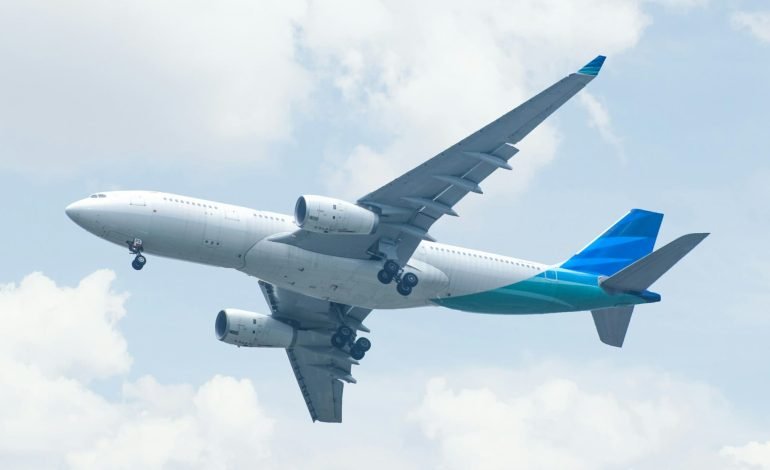Aviation tax could generate EU money towards climate policies

The EU could see a boost in its carbon price revenue from aviation if it eliminates exemptions and applies its emissions rules fully across the sector. That’s according to a new study from Carbon Market Watch.
The environmental watchdog says that planned 2026 revisions to the EU’s CO2 pricing system would be an “excellent opportunity” to cut emissions from aviation and generate significant funding towards climate policies.
Despite the significant environmental impact, intercontinental flights to and from Europe are, for the most part, exempt from its emissions trading system (ETS), the EU’s main tool for pricing carbon pollution from the sectors that emit the most.
At the moment, only intra-European flights are fully covered, with half of their emissions being exempt until 2026. Airlines are required to monitor their non-CO2 emissions, including water vapour, nitrogen oxides, and sulphur dioxide. These warming effects however, remain exempt from carbon pricing.
The watchdog says that extending CO2 pricing to the entire aviation sector, including all intercontinental flights to and from Europe, could see revenue of from €112 billion in 2025 to €417 in 2040.
If it only applied to EU routes and flights to countries that are not part of the Carbon Offsetting and Reduction Scheme for International Aviation (CORSIA), that would be only €196 billion. CORSIA is a controversial and less stringent international carbon offsetting scheme under development.
But if it were expanded even to include private aviation and the pricing of non-CO2 pollution, total revenue could be as high as €1.1 trillion, according to the study.
Stay tuned to EyeOnLondon for the latest news and expert opinions.
Follow us on:
Subscribe to our YouTube channel for the latest videos and updates!
We value your thoughts! Share your feedback and help us make EyeOnLondon even better!









